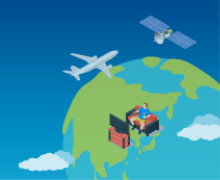- Sustainability
- Materiality
- Expert Opinions
FY2020: Expert Opinions (On the Identification of Materiality Themes)
From the Perspective of Disclosing Sustainability Information
March 25, 2021
Profile
 Chairman & CEO
Chairman & CEO
Inoue Public Relations, Inc.
PhD in Public Management
Mr. Takashi Inoue
In 1968, graduated from Waseda University, where he majored in Marketing and Administration. Founded Inoue Public Relations, Inc. in 1970. From 2004, taught public relations theory as a Visiting Professor at Waseda University. In 2009, received PhD in Public Management (Public Relations) from the Graduate School of Public Management of Waseda University. Through his research on a “self-correction model,” he became the first Japanese person to be awarded a PhD in public relations research. In 2012, appointed as a Visiting Professor, Graduate School of Management at Kyoto University. Served as a Visiting Professor at Akita International University from 2016 to 2018. Served as a Visiting Professor at the Graduate School of Information Technology of Kobe Institute of Computing from 2018. Established the Society of Global Business in 2012 for the study of international business issues, information exchange, and human resources development and assumed office as Representative Director and Vice Chairman.
Storytelling by top management is key to distinctive materialities
For a company, identifying and disseminating materialities is part of public relations (PR). As a storyteller, it is important that top management have the strategy of continually communicating the company’s sustainability initiatives, both their financial and non-financial aspects.
The cardinal rule in PR is to be distinctive. Of the 9 materiality themes identified by the SKY Perfect JSAT Group, “building resilient broadcasting and communications infrastructure, eliminating information gaps” and “improving the richness of life through a diversity of content” do well to reflect the characteristics of the Media Business and the Space Business. I believe that these two materiality themes have significant roles to play.
“Improving the environment in space” is a unique theme that other companies cannot easily imitate, and it is a good theme suitable for publicizing globally to show the strengths of the Group. At present, there are some 10,000 satellites in space and space debris has emerged as a global issue. If the SKY Perfect JSAT Group takes the initiative on this issue, it could generate global news and might lead to significant SDGs branding. From what I hear, space debris elimination has yet to be commercialized as an actual business. If you consider it as a cost for public relations, the Group can earn a sufficient return in the future through enhanced corporate value. Therefore, this theme should be accorded an extremely high priority.
For “promoting innovation which contributes to the environment and society,” it is important not only to refine the Group’s own technology but also to consider partnerships, such as providing financial support to start-ups that are tackling technology development.
Going forward, I recommend Corporate Communications of the SKY Perfect JSAT Group to strategically disseminate the identified materiality themes. Many Japanese companies are passive about communication, resulting in coverage by the media for the benefit of the media. The SKY Perfect JSAT Group should set itself apart. It is essential to proactively engage in dissemination of information to stakeholders based on a PR plan designed in advance. It is also critically important to make sustainability a story and communicate it as a message. Such an approach will enable the Group to recoup investment in initiatives concerning materialities over the medium to long term and further enhance corporate value.
Other expert third-party opinions and dialogues
FY2023
- Dialogue with Expert (Overall Sustainability)
- Dialogue with Expert (Environment)
- Dialogue with Expert (Human Capital)




